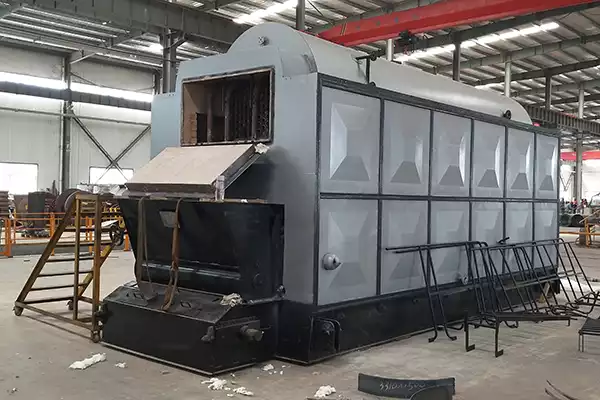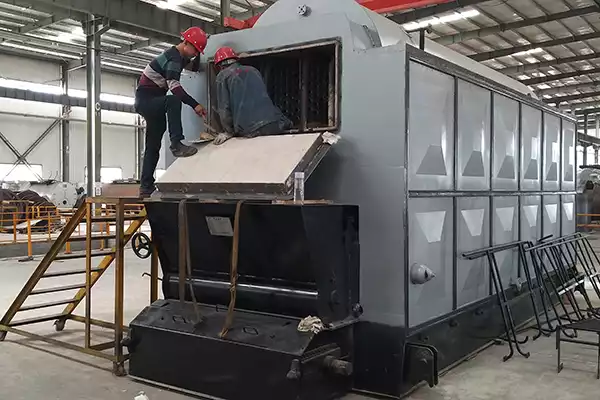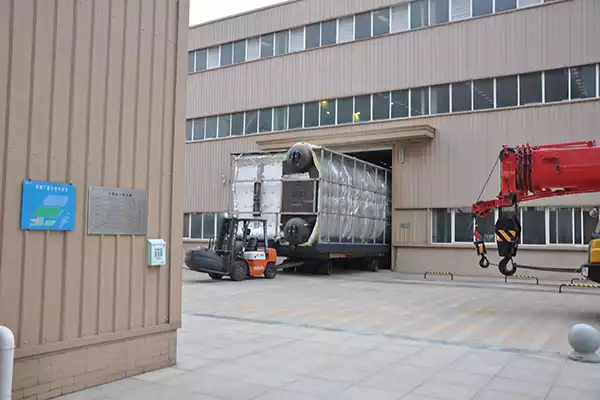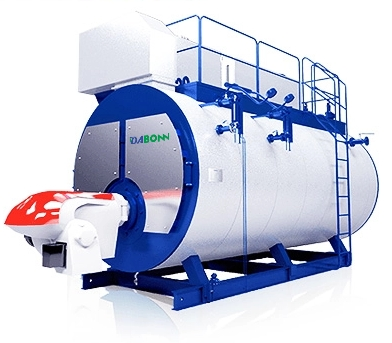
As global energy crises and environmental challenges intensify, the search for clean and renewable energy sources has become a global priority. Biomass boilers, as efficient devices utilizing biomass energy, play a crucial role in industrial production, heating, and power generation due to their environmental benefits, energy efficiency, and economic advantages. This article provides a comprehensive analysis of biomass boilers, covering their working principles, classifications, application areas, advantages, disadvantages, and future prospects.
Working Principles of Biomass Boilers
The core function of a biomass boiler is to convert the chemical energy stored in biomass fuels into heat energy to meet heating, warming, or power generation demands. The process generally involves the following steps:
- Fuel Supply
Biomass fuels (such as wood chips, straw, rice husks, etc.) are fed into the combustion chamber using automated or semi-automated equipment. These fuels are often compressed into pellets or blocks, making them easier to transport and combust. - Combustion and Heat Generation
Inside the combustion chamber, the fuel burns in contact with air, releasing significant heat. Biomass boilers typically feature primary and secondary combustion designs to ensure thorough fuel burning and reduced pollutant emissions. - Heat Exchange
The heat generated during combustion is transferred to boiler water via a heat exchanger, producing high-temperature steam or hot water. This thermal medium is then delivered to end users for industrial or residential applications. - Waste Gas Treatment and Emission
The combustion process produces some smoke and gases. Dust collectors, desulfurization units, and denitrification systems are used to minimize emissions of sulfur dioxide, nitrogen oxides, and particulate matter, ensuring compliance with environmental standards.
Classification of Biomass Boilers
Biomass boilers can be categorized based on their structure and applications:
- By Application
Industrial Boilers: Generate steam or hot water for industrial production lines.
Heating Boilers: Provide centralized heating for residential areas, schools, or commercial buildings.
Power Generation Boilers: Drive turbines for electricity production while utilizing residual heat for other purposes. - By Combustion Method
Fixed Grate Boilers: Burn fuel on a stationary grate, suitable for small-scale boilers.
Chain Grate Boilers: Use a moving grate to automatically feed and burn fuel, widely used in medium-sized industries.
Fluidized Bed Boilers: Burn fuel in a high-temperature fluidized medium, offering high combustion efficiency and fuel adaptability.
Gasification Boilers: Convert biomass fuel into gas for combustion, achieving higher thermal efficiency. - By Fuel Type
Pellet Fuel Boilers: Designed for specialized biomass pellets.
Block Fuel Boilers: Suitable for wood or agricultural straw blocks.
Mixed Fuel Boilers: Capable of using various biomass fuels simultaneously.
Application Areas of Biomass Boilers
- Industrial Applications
Biomass boilers are widely used in food processing, textile dyeing, papermaking, pharmaceuticals, and chemical industries. For instance, in food processing, steam generated by biomass boilers is used for cooking, sterilization, and drying. - Heating Systems
In colder regions, biomass boilers provide centralized heating for rural residences, schools, and public buildings, serving as an eco-friendly alternative to coal-fired boilers. - Biomass Power Generation
Biomass boilers serve as the core equipment in power plants, driving turbines to generate electricity while providing residual heat for heating purposes, achieving comprehensive energy utilization.
Advantages and Disadvantages
Advantages
- Strong Environmental Benefits
Biomass fuels produce almost zero net carbon dioxide emissions due to the “carbon-neutral” effect of absorbing equivalent amounts of CO₂ during growth. - Renewable Energy
Biomass fuels are widely available and renewable, including agricultural and forestry waste, urban organic waste, etc., reducing reliance on fossil fuels. - Low Operating Costs
Biomass fuel prices are generally lower than coal or natural gas, and many waste materials can be directly used as fuel. - Policy Support
Governments around the world promote biomass boilers through subsidies and tax incentives to encourage renewable energy adoption.
Disadvantages
- Fuel Storage and Transportation
Biomass fuels are bulky and have low energy density, requiring dedicated storage areas and transportation facilities. - Boiler Operation and Maintenance
Impurities in biomass fuels (e.g., sand and stones) can cause wear and tear in the combustion chamber, necessitating frequent maintenance. - Efficiency Limitations
While continuously improving, biomass boilers’ thermal efficiency is generally lower than that of natural gas boilers.
Future Development of Biomass Boilers
- Technological Innovation
Enhanced Combustion Efficiency: Optimize combustion technology to further reduce pollutant emissions.
Smart Control Systems: Develop automated and intelligent boiler control systems to improve operational efficiency. - Fuel Diversification
With advancements in fuel pretreatment technology, a broader range of biomass wastes, such as sludge and municipal waste, can be utilized. - Policy and Market Promotion
Government policies will further promote biomass boiler adoption globally, increasing economic benefits for users. - Integration with Renewable Energy
Combining biomass boilers with solar and geothermal energy to create comprehensive energy systems will be a significant future trend.
Conclusion
Biomass boilers, as vital equipment for clean energy utilization, stand out for their environmental, economic, and versatile benefits. Despite challenges in fuel storage, maintenance, and efficiency, continuous technological advancements and policy support suggest a promising future for biomass boilers on a global scale.
Whether in industrial production, centralized heating, or power generation, biomass boilers demonstrate immense potential and competitiveness. Looking ahead, these boilers are poised to play a more critical role in renewable energy utilization and environmental protection, contributing significantly to sustainable development worldwide.
Get your best price
Quickly compare 3 FREE quotes
- Engineer quick quote
- The overall delivery speed is fast
- Financial choice
- Low installation costs and cost savings
25 years+ of boiler R&D
More than 20 innovative technologies



